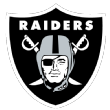Picking best free-agent offers for Le'Veon Bell, and the one he should take

Le'Veon Bell is expected to reset the market for running backs when he hits free agency next month. Which teams are interested, and what could his contract look like?
We asked NFL Nation reporters to make their best offer -- on behalf of the teams they cover -- to the former Pittsburgh Steelersback, who sat out the entire 2018 season because he wanted a long-term contract.
We came up with three teams likely to make offers for Bell, and each has the cap space -- and need -- to sign him. There are also five teams popularly linked with pursuing Bell who our reporters think will get running back help elsewhere.
The offers below are based on what each reporter believes their team'sfront office would offer Bell next month.We then had senior NFL writer Mike Sando take on the role of Bell's agent and pick the best offer for his client. Check out his decisionhere.
: four years, $60 million
: $15 million
: $25 million
: $49 million
: $28 million after Year 1, $38 million after Year 2, $50 million after Year 3.
The Packers have enough cap space -- around $35 million -- to make a move on a high-priced free agent, and they could free up more if they cut a veteran or two (outside linebackerNick Perry might be the most likely). Plus, the team doesn't have any must re-sign players on their list of free agents.
Second-year GM Brian Gutekunst has shown aggressiveness in pursuing players even if he didn't land them. He made a strong run at Khalil Mack last year and came up short. Yes, Gutekunst inherited two capable running backs in Aaron Jones and Jamaal Williams, but neither has shown the ability to either stay healthy long enough or produce consistently enough to be a 1,000-yard rusher. Bell is a game-changer, especially for an offense that lacks depth at receiver and tight end.
Brett Favre had nine seasons with a 1,000-yard rusher in his backfield. So far, Aaron Rodgers has had that just four years -- and none since Eddie Lacy in 2014.
Todd Gurley's deal from last July -- four years, $57.5 million with a $21 million signing bonus and $45 million guaranteed -- has to be the starting point for the deal with Bell. His deal averages less than what Bell would have made under the franchise tag last season ($14.54 million). The average doesn't necessarily have to exceed that by a ton, but the up-front money and guarantees must. This offer is likely the highestGutekunst and Green Bay would go for Bell.
New coach Matt LaFleur's history suggests he'll want a running back he can build the offense around the way one of his mentors, Sean McVay, has done with Gurley in Los Angeles. Perhaps Gutekunst will give him one in Bell. -- Rob Demovsky
five years, $75 million
$15 million
$30 million
$50 million
$26 million after Year 1, $32 million after Year 2, $45 million after Year 3.
The Texans can make Bell the highest-paid running back and blow the money that has been guaranteed on other deals out of the water, and they will still be able to fill other holes on the team after they do so. Houston can front-load the contract and absorb a large cap hit in the first year because it has more than $78 million in cap space in 2019.
The Texans can offer Bell $26 million the first year and $45 million in the first three years of the contract, as well as $30 million guaranteed at signing. Even after they re-sign Jadeveon Clowney -- either with the franchise tag or a new long-term contract -- the team will have the money for this deal. Houston also has Deshaun Watson on a team-friendly rookie contract, which gives it flexibility to invest in other players before having to reward him with a huge extension.
If Bell signs with the Texans, he will join a good offense that will only get better with his contribution. By playing alongside DeAndre Hopkins, Bell would give Houston the best receiver-running back duo in football. The duo would give immense support to Watson, who was hampered by a lack of playmakers, an inconsistent running game and, most importantly, a poor offensive line. The Texans will try to improve the line through the draft and free agency, but adding a talent like Bell would help make everyone look better. Last season, they were eighth in rushing, 15th in total yards per game and 11th in points per game. A playmaker like Bell would put Houston over the top and surely help avoid another performance in the playoffs like it suffered against the Colts.
While starting backLamar Miller has put up solid numbers in Houston, he is not as good of a playmaker as Bell, especially in the passing game. Bell would provide a boost to the Texans on the ground, but his most important contribution to the team would be the support he would give Watson. Bell, an elite pass-catcher, would add yet another dimension and level of support to coach Bill O'Brien's offense. Houston failed in the playoffs against the Colts because of a lack of depth. With wide receiver Will Fuller Vout with a torn ACL and Hopkins nursing a shoulder injury suffered in the first half, Watson didn't have anyone to turn to. Adding an elite runner who could provide a massive boost in the passing game could be just what this team needs.
The Texans faltered in the playoffs but showed they have talent on their roster by winning 11 of their last 13 regular-season games. They have never been to an AFC Championship Game, but the addition of Bell could be the difference-maker. If Bell wants to win a Super Bowl, Houston is his best landing spot. -- Sarah Barshop
four years, $59 million
$14.75 million
$26 million
$46 million
$26 million after Year 1, $36 million after Year 2, $46 million after Year 3.
The Jets are in a unique position, one that screams, "Le-VEE-on!" They have a crying need for an offensive playmaker, and they have the financial flexibility to make a strong bid.
The Jets have a quarterback (Sam Darnold) still on his rookie deal, which means they have a three-year window in which they can absorb a mega-contract without wrecking their financial structure. They also have approximately $100 million in cap room, with all their key players (what few they have) under team control for at least another year.
Clearly, finances won't be an issue. From a football perspective, Bell is a hybrid runner-receiver who would instantly upgrade the Jets' rushing and passing attacks. Darnold completed only 57.7 percent of his passes, in part because he was fifth in percentage of attempts of 15 yards or more. His completion rate will jump at least five points with a short-area weapon such as Bell, who can also create play-action opportunities as a running threat.
Let's talk money. This proposed contract is based largely on the Gurley and David Johnson deals from 2018. The full guarantee at signing eclipses Johnson's mark for running backs ($24.7 million) and the total guarantee tops Gurley's record for the position ($45 million). In other words, Bell would be the highest-paid running back in history.
The trick will be convincing him the Jets, with offensive-line issues and a recent history of losing, are the right fit. Their best selling points: cap room to fortify the line; Darnold's potential; young backs Elijah McGuire and Trenton Cannon to reduce wear and tear; and the New York market, which should appeal to his rap-music interest. One of Bell's favorite players as a kid was former Jets star and Hall of Famer Curtis Martin, now a successful businessman in New York. Martin can recruit Bell, showing him how a New York athlete can transition into life after football. -- Rich Cimini
Let me count the reasons why I'm advising my client to from the three made here today.
The $15 million annual average and $30 million fully guaranteed both raise the bar at the running back position. None of the other offers here exceeds those figures or reaches the $50 million in total guarantees. For the sake of comparison, Gurley got $21.95 million fully guaranteed. The Texans are offering the best combination of numbers even though their deal is the only one exceeding four years (either way, this is probably my client's only monster deal).
Green Bay's offer was outstanding, and better in some ways. The two-year payout of $38 million was appealing because, let's face it, any team signing a free agent to a deal of this magnitude could move on after a couple of seasons, but probably not after one. How many running backs could turn down $19 million a year for two years? The Packers' offer also mirrors what some contract negotiators around the league have predicted my client would take. It's a good offer. The Jets were a tick lower in average per year. Hitting the $15 million-a-year mark was appealing.
Wisconsin and New Jersey have state income taxes for individuals. Texas does not. That means my client will keep more of his money playing for the Texans than he would playing for the Packers or Jets. The AFC South schedule takes the Texans to other states without income taxes (Florida, Tennessee), shielding additional income from Uncle Sam. It's a potential tiebreaker.
If winning was the most important consideration, my client would have stayed with Pittsburgh. That doesn't mean my client is only about the contract. The opportunity for on-field team success becomes a consideration once the financial parameters are satisfactory. All three teams making offers carry some appeal that way, but Houston offers a roster loaded with superstars in their prime years. Who wouldn't want to play with Watson, Hopkins and J.J. Watt?
There is only one New York market, but Houston is the fourth-largest city in the country and on track to overtake Chicago for the third spot. No complaints there.
Critics will say my client should have taken the Steelers' previous offers, that he'll never recoup lost earnings. They might be right, but my client wanted choices. He wanted to test the market. He won that right and secured the deal and situation he found most appealing. He did it on his terms. That was important to him.
The conflict with the Steelers was unfortunate. What no one predicted, really, was that the Rams would re-sign Gurley so early and for so much money. That raised the bar past where the Steelers were comfortable going, and helped us get to where we are today.
This entire process has been a grind. It's a relief to finally have a resolution. --Mike Sando, playing the part of Bell's agent
NFL Nation reporters explain why these teams won't be pursuing the free-agent running back:
Pairing Bell with Lamar Jackson would be an intriguing combination, but it wouldn't fit new GM Eric DeCosta's philosophy of being "financially responsible" with the salary cap. The Ravens don't have any player averaging more than $10.5 million per season (once quarterback Joe Flacco is officially traded), and Bell reportedly turned down a deal last season that averaged $14 million per season. Plus, Bell's ultra-patient running style isn't a great fit for run-option plays, which will likely remain a big part of the offense in 2019. -- Jamison Hensley
The biggest -- and probably only -- reason Bell has been linked to the Colts is the fact that they will have approximately $110 million in salary-cap space, an NFL high. Bell's talent can't be questioned, but GM Chris Ballard and coach Frank Reich have developed a team-first mentality inside the locker room. Bell's decision not to play last season because of his contract situation does not represent the type of attitude the Colts want. They also are high on their own running backs:Marlon Mack, who was 92 rushing yards shy of 1,000 despite missing four games last season, Nyheim Hines and Jordan Wilkins. All three are still on their rookie contracts. -- Mike Wells
If the Raiders were a piece or two away from competing, going all-in on Bell would make sense. Thing is, they are in the middle of a Jon Gruden-style rebuild after last season's teardown, so throwing piles of cash at Bell after the team chose to move on from edge rusher Khalil Mackmakes little sense. Especially with how much Gruden loves Doug Martin, how well Martin played late last season, and how relatively cheap Martin will come in comparison to Bell's expected payday. And what if Oakland's favorite son,Marshawn Lynch, decides he wants one last run with the Raiders, especially if they do play one last season in The Town? -- Paul Gutierrez
Allocating big money to the running back position goes against the Eagles' team-building philosophy. Even if they have determined he is the exception to the rule, they rank dead last in 2019 cap space and don't appear to be in position to splurge. If the market for Bell doesn't develop as expected, perhaps they'll pounce. Otherwise, their best bet is to replenish in the draft -- they have two second-round picks -- and via less expensive free-agent options. -- Tim McManus
From a pure football perspective, Bell would be a great fit for the 49ers as his skill set would be an ideal fit in coach Kyle Shanahan's offense. San Francisco has plenty of salary-cap space to make a move if it wanted. But the Niners are eager to see the duo of Jerick McKinnon and Matt Breida working in tandem, something that didn't happen in 2018 because McKinnon tore his ACL before the season started. Theoretically, the Niners could move on from McKinnon to pursue Bell, but it would cost $6 million in dead money to part with him in addition to the likely massive financial commitment it would take to land Bell. Given the success Shanahan and the Niners have had with unheralded backs such as Breida and Jeff Wilson Jr. -- along with their far more pressing needs at other positions -- it's hard to envision them spending on Bell unless his price comes in much lower than expected. -- Nick Wagoner















